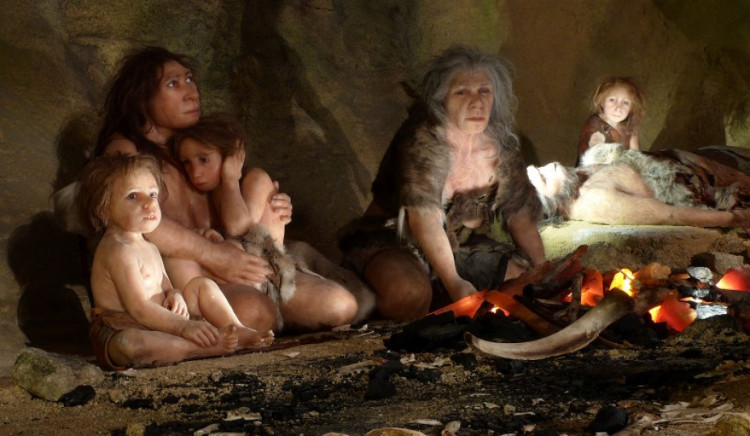The reason the human ancestors gave up cannibalism
The new study shows that human flesh has less nutritional value than other animals, while much harder to hunt for prehistoric humans.
Many archaeological studies show that prehistoric human ancestors used to eat cannibalism, but over time, people gradually abandoned this behavior for many different reasons, of which nutritional value was An important factor, the Guardian reported on April 6.
Evidence of cannibalism is demonstrated by cuts and teeth marks on human bones found in a number of prehistoric sites located in France, Spain and Belgium dating back 800,000 years, slightly revealing our ancestors as well as other limbs Neanderthal and Homo antecessor sometimes eat each other.

Evidence of human cannibalism is found in some prehistoric sites.(Photo: Reuters).
However, the latest research by British scientists shows that prehistoric humans gradually abandon predatory behavior because this type of meat has a low nutritional value and is harder to find than many other animals. Only some tribes continue this practice for religious or sacrificial reasons, not from hunger.
Considering the nutritional value of the human body, James Cole, an expert in evolution at the University of Brighton, UK, said an adult man weighing about 66kg provided only 144,000 calories, of which muscles accounted for more than 32,000. calories and kidneys account for 376 calories and the spleen accounts for 128 calories.
Animals hunted by prehistoric humans have much higher nutritional value. The 3,600,000-calorie mammoth muscle of the deer is 163,680 calories. The saiga contains about the same amount of calories as humans, with muscles containing 31,500 calories.
In other words, a mammoth can provide enough energy for 25 prehistoric people in a month, while eating a person only helps them fill one stomach a day.
"This study shows that our bodies do not have much nutritional value," said Cole, the author of the study published in Scientific Reports. "We are relatively small animals, not much meat or fat."
Meanwhile, it is much more difficult to hunt for a fellow to eat meat because humans have intelligence, can resist, and flee the hunt.
According to Cole, cannibalism can be opportunistic. Individuals who are eaten can die from natural causes, or are involved in the purpose of territorial protection.
- Species ancestors who once eat cannibalism
- Why is cannibalism unacceptable in humans?
- Explaining the cause of human cannibalism
- This horror creature turns out to be the oldest human ancestor
- New shocking disclosure of human ancestors
- Why do the ancient ancestors of human beings walk on two legs?
- Prove human ancestors of Asian origin
- Famous novelist predicts cannibalism
- Sexual revolution of human ancestors
- Why do people eat people?
- Human ancestors are jellyfish?
- This is a human face if evolved from other animals that are not apes!
 Discovered an ancient centipede fossil 99 million years old
Discovered an ancient centipede fossil 99 million years old Discovered bat-like dinosaurs in China
Discovered bat-like dinosaurs in China Discovered a 200-year-old bronze cannon of the coast
Discovered a 200-year-old bronze cannon of the coast Discover 305 million-year-old spider fossils
Discover 305 million-year-old spider fossils